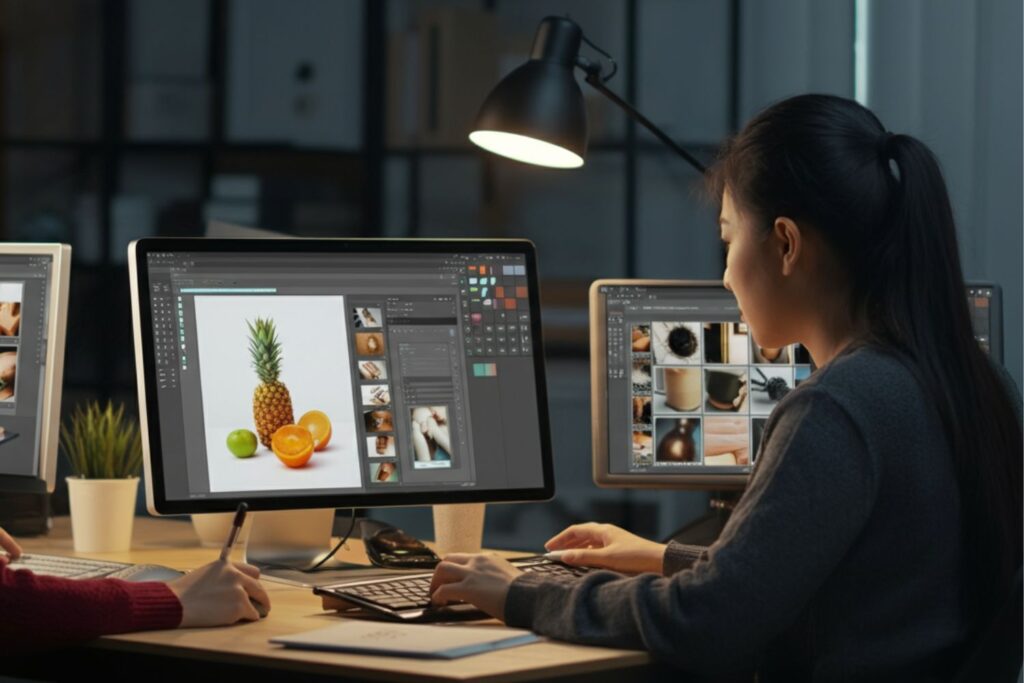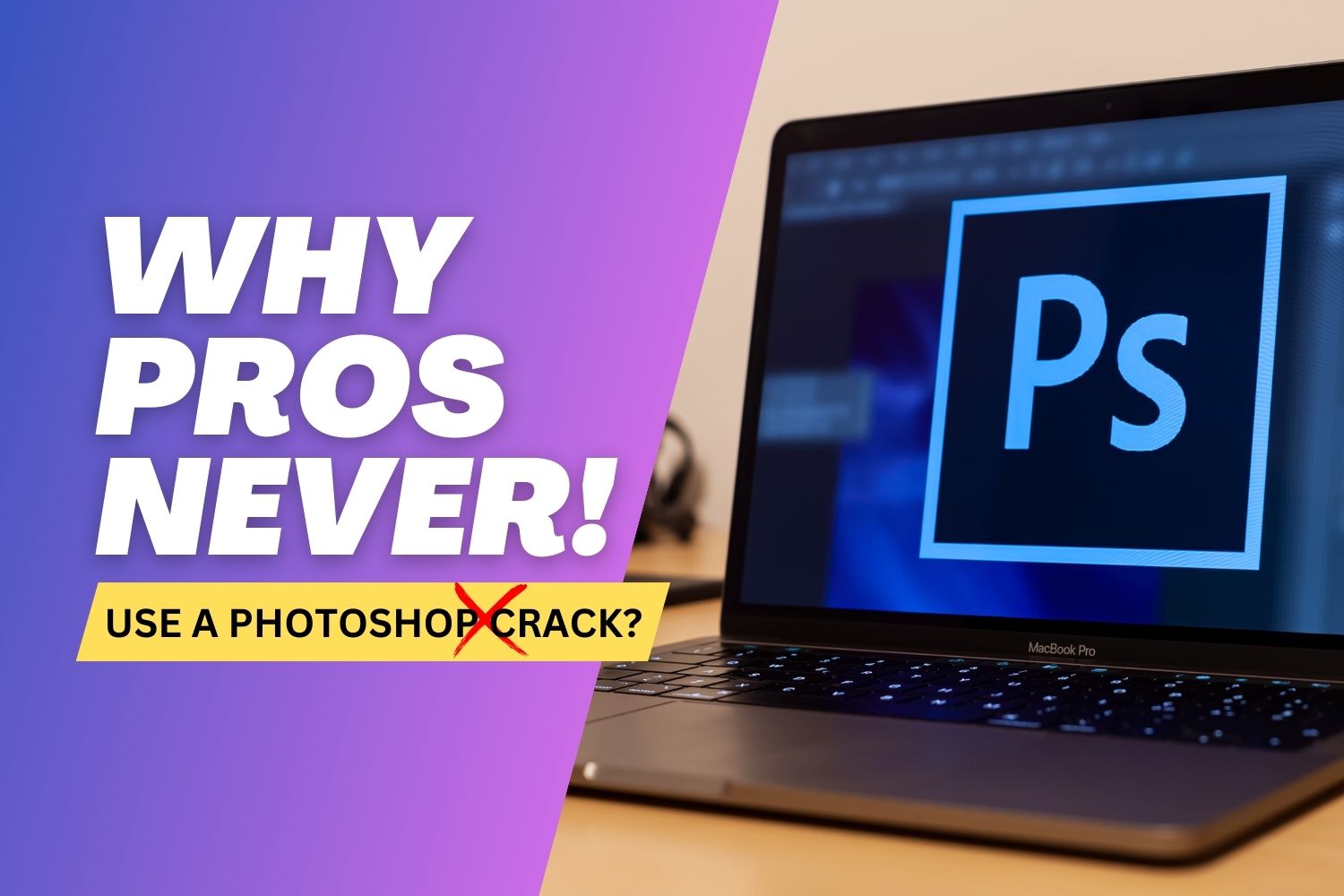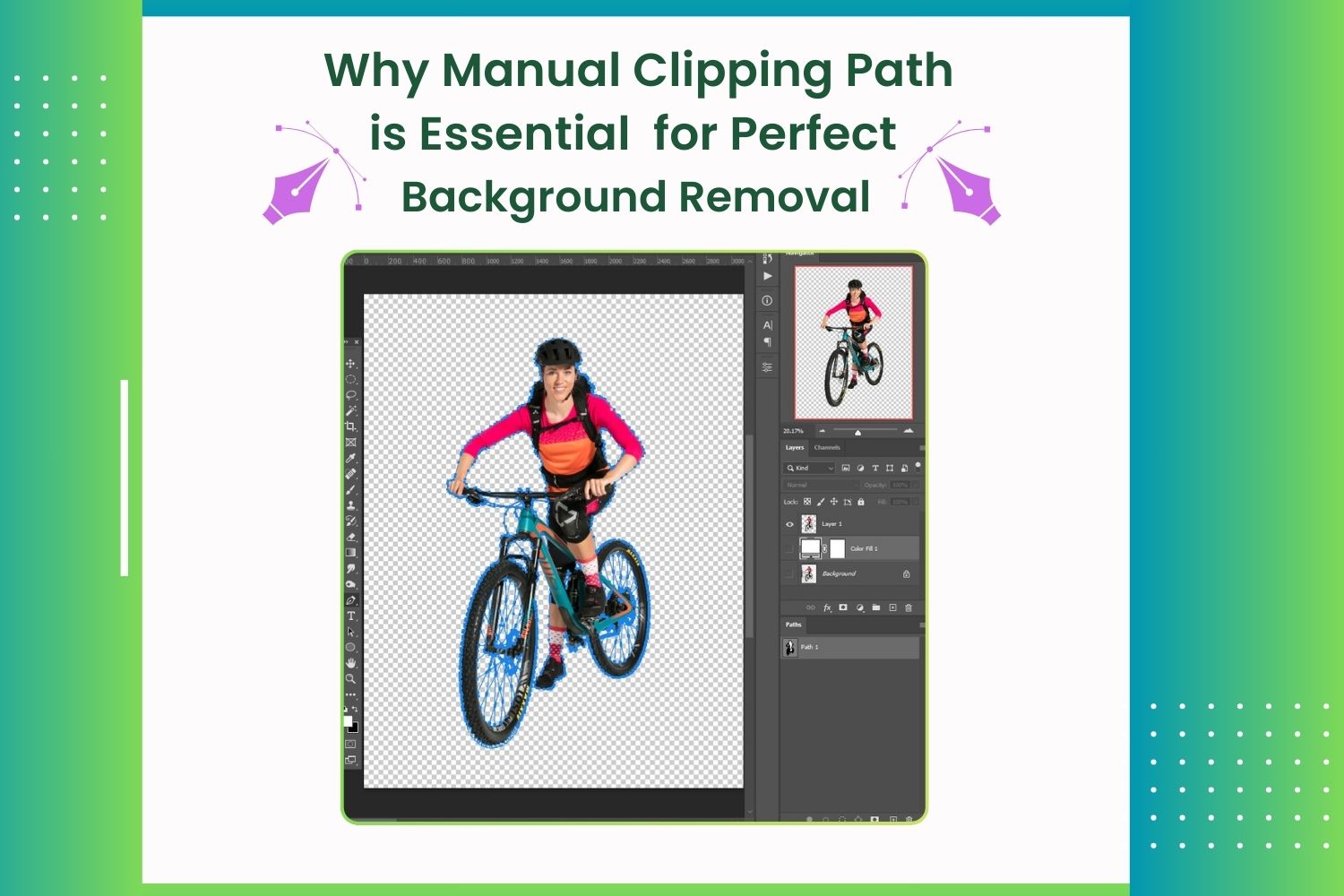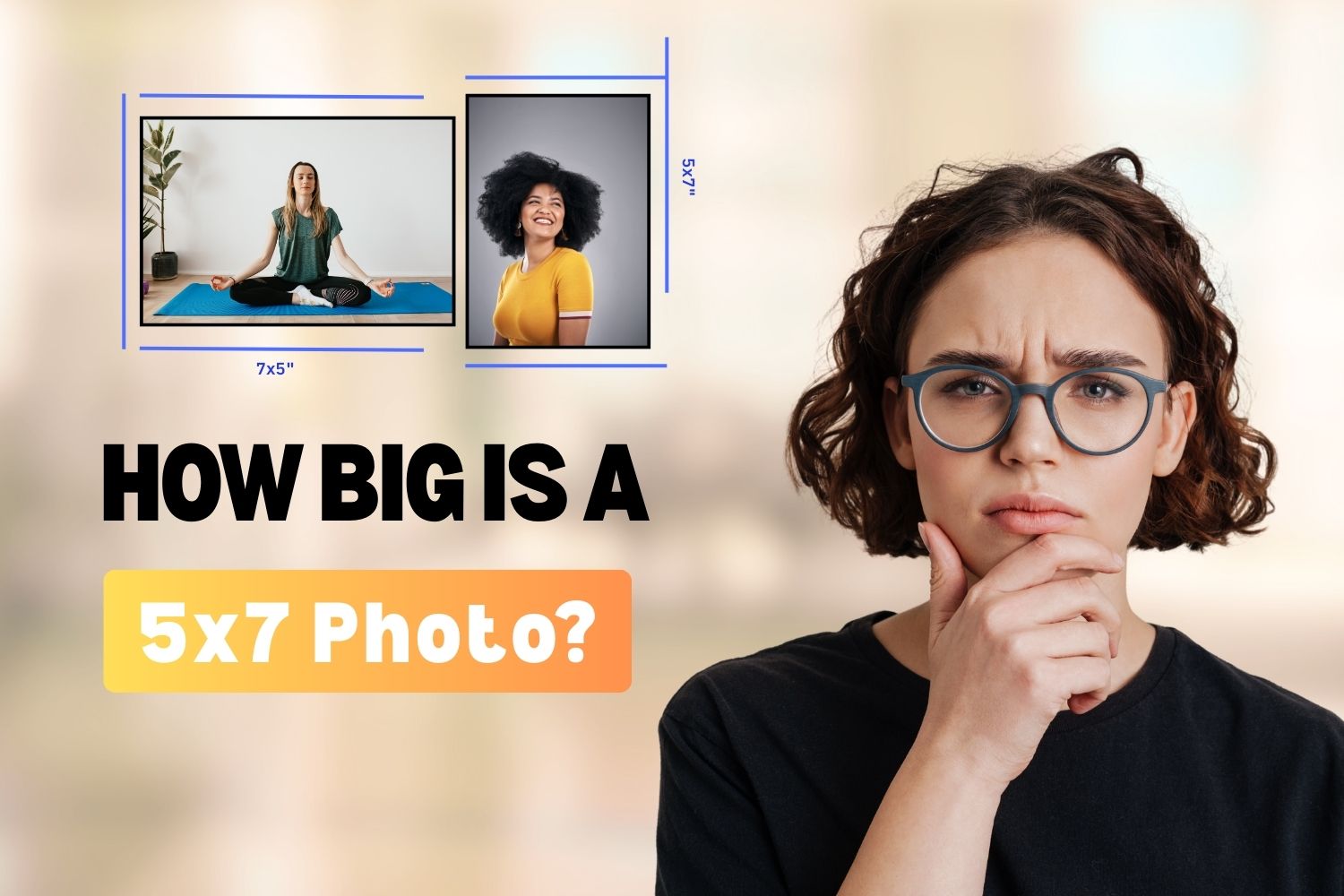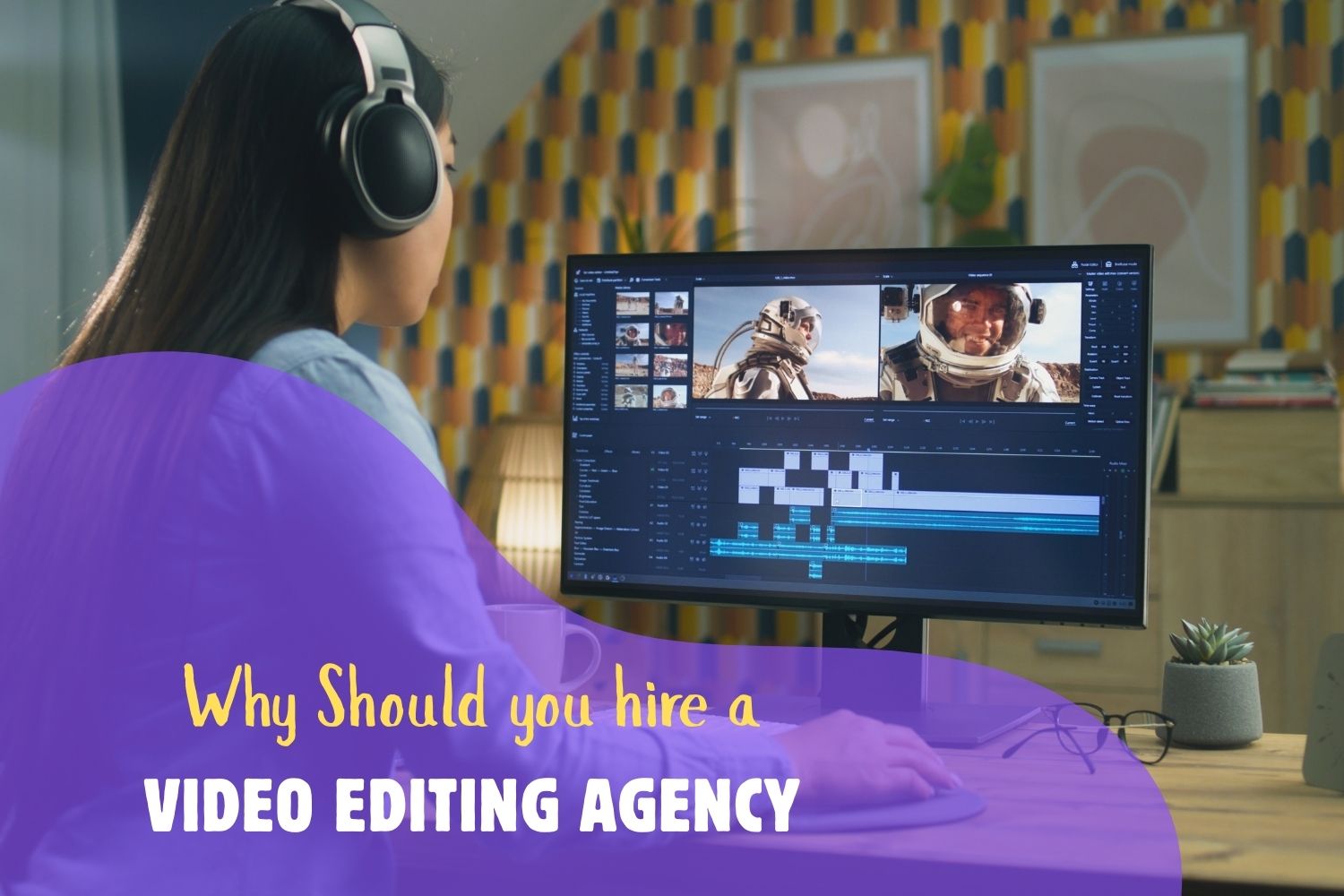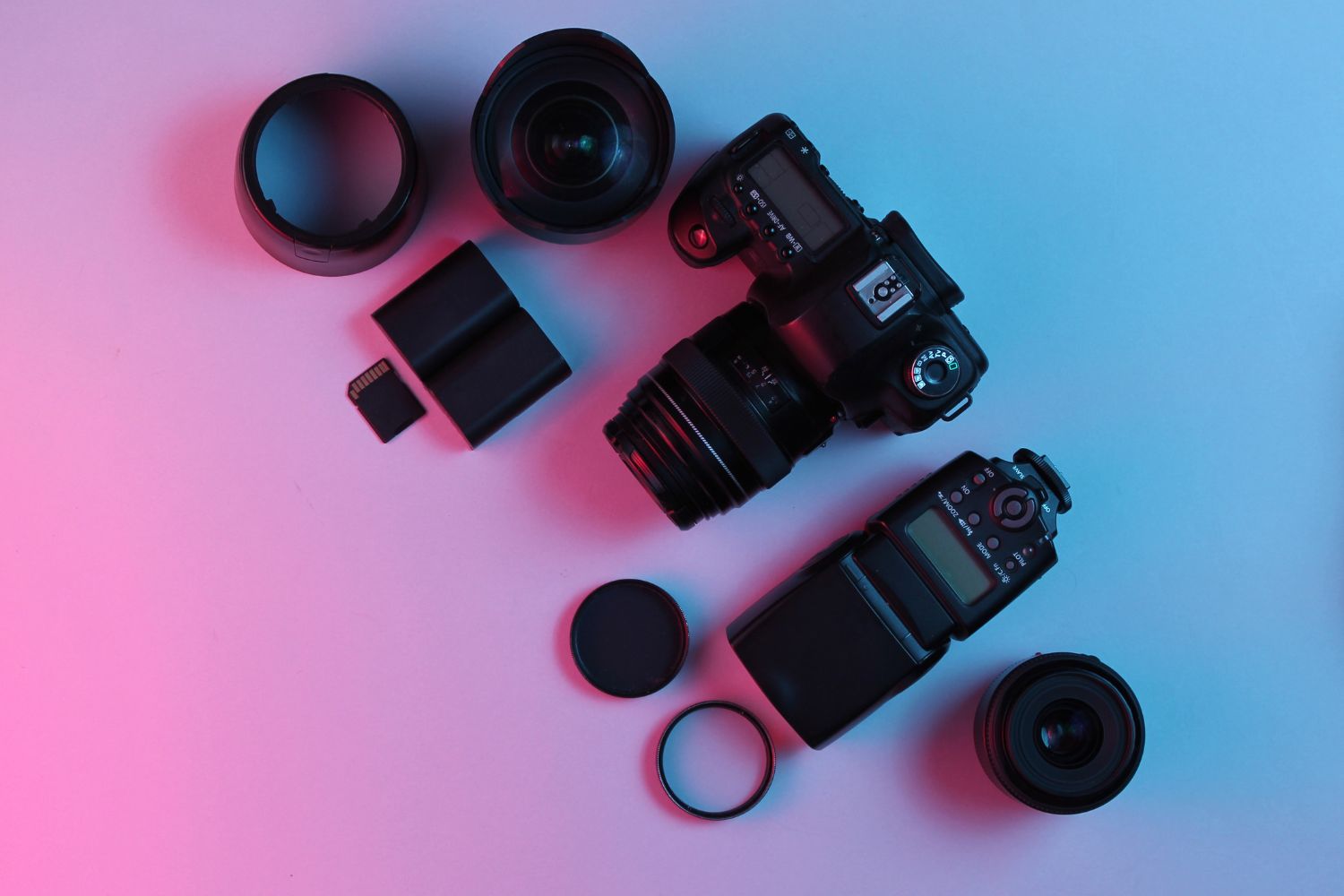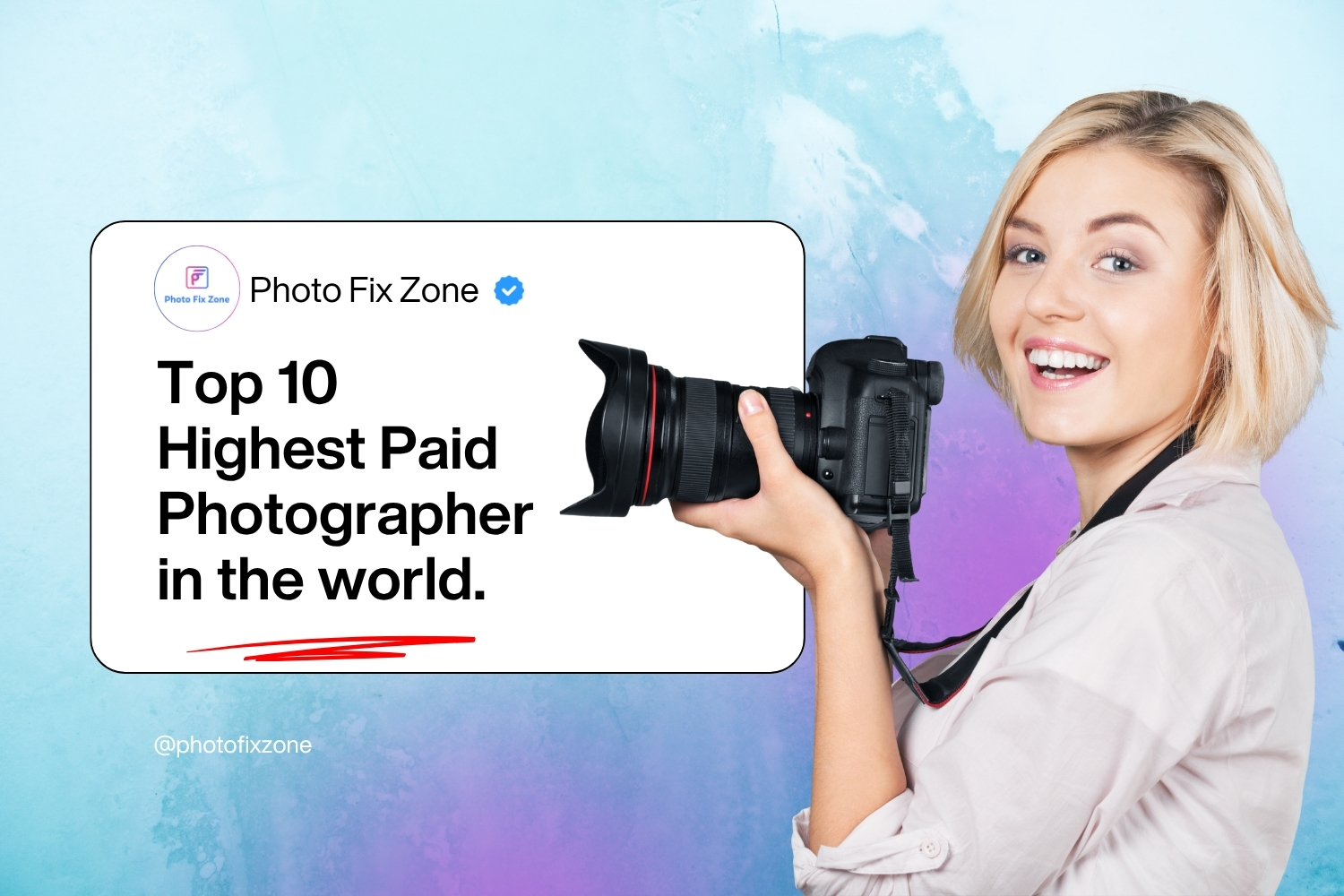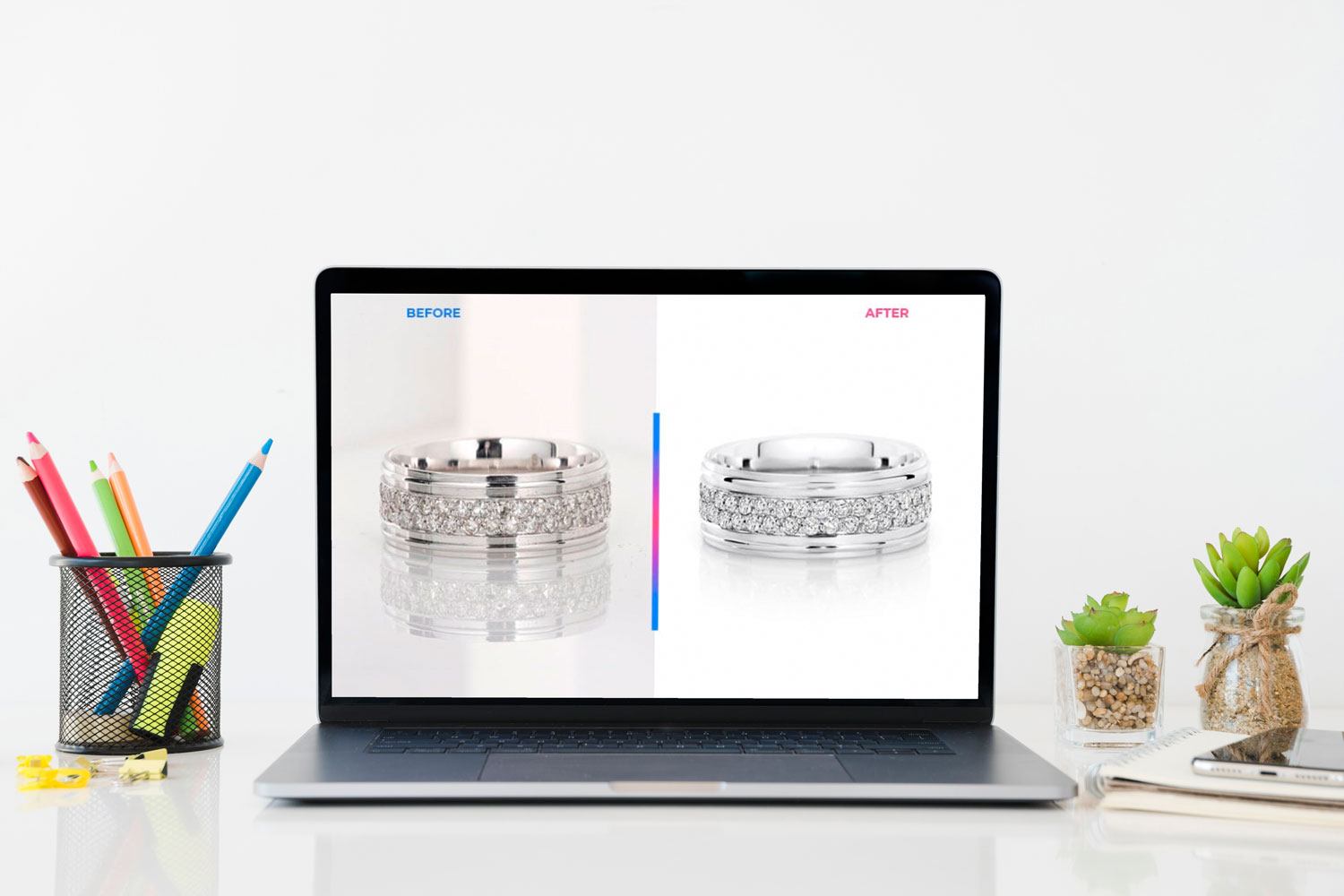Manual Photo Editing vs AI: What’s Best for eCommerce Product Photos in 2025?
In 2025, product photos are more than just images—they’re your digital storefront. Whether you’re selling on Shopify, Amazon, Etsy, or a custom-built site, the quality of your photos decides if a shopper clicks Add to Cart or keeps scrolling.
So, when it comes to editing those all-important images, which is better: Manual photo editing or AI?
Table of Contents
ToggleLet’s unpack both, and make no mistake, manual editing still holds the crown.
What is Manual Photo Editing?
Manual photo editing is the old-school, hands-on approach. A real human editor uses software like Adobe Photoshop or Lightroom to enhance your product images. It’s all about craft, attention to detail, and years of experience.
Common manual edits include:
- Background cleanup or removal
- Product Retouching
- Color correction and tone balancing
- Clipping paths and product outlines
- Realistic drop and natural shadows
- Dust, scratch, or wrinkle removal
- Matching visual styles across image sets
Manual editing is intentional. It’s not about clicking a button; it’s about understanding what makes an image sell.
What is AI Photo Editing?
AI photo editing is the fast lane. It uses machine learning to edit photos automatically. Tools like Luminar, Canva’s Magic Edit, or even Photoshop’s AI tools try to mimic human judgment with algorithms and massive datasets.
What AI can handle:
- Auto-remove backgrounds
- Basic color adjustments
- Cropping and resizing
- Object detection and quick touch-ups
The goal of AI editing is speed and convenience. But as good as it’s gotten, it still lacks the nuance of human eyes.
Manual Editing: The Gold Standard in 2025
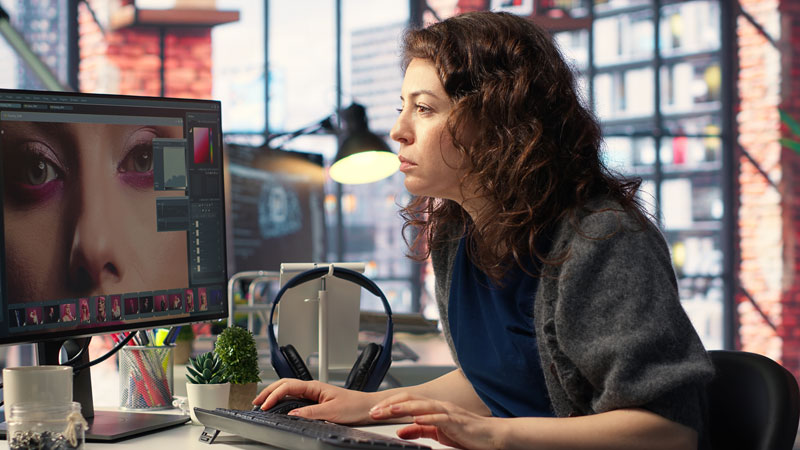
Let’s be real—AI is getting better. But it’s still no match for manual editing, especially when you’re selling products online. Here’s why manual editing is still the preferred choice:
✅ Flawless Attention to Detail: AI can’t spot subtle dust, reflections, or odd highlights. A trained editor can. That precision matters, especially when shoppers zoom in on mobile screens.
✅ Perfect Color Accuracy: Humans understand tone. If your red t-shirt is coming out too orange or your skin tone looks pale, only a manual editor knows how to correct that without making it look artificial.
✅ Marketplace Compliance: Amazon, Etsy, and other platforms have strict photo guidelines. A professional manual editor follows these down to the pixel—AI might miss key compliance details and cost you visibility.
✅ Tailored to Your Brand: Every brand has a look. A mood. A style. Manual editors can match and maintain that across all images. AI? It’s just trying to guess what looks “normal.”
✅ Creative Control: Want a subtle shadow, more depth, or a polished-but-natural retouch? That’s where human judgment makes all the difference.
Where AI Tries to Keep Up
Benefits of AI:
✅ Speed: Edits hundreds of images in minutes.
✅Cost: Low-cost or free tools available.
✅Automation: Good for repetitive tasks.
✅Quick Fixes: Acceptable for basic backgrounds or batch resizing.
But if you’ve ever seen a bot cut out hair awkwardly, or leave product edges soft and fuzzy, you know exactly where AI falls short.
Side-by-Side Comparison
|
Feature
|
Manual Editing
|
AI Editing
|
|---|---|---|
|
Background Removal |
✅ Flawless & clean |
⚠️ May miss fine edges |
|
Color Correction |
✅ Human-calibrated tones |
⚠️ Generic and often dull |
|
Detail Retouching |
✅ Professional precision |
❌ Often misses key flaws |
|
Batch Processing |
✅ Super fast |
⚠️ Sometimes needs more time |
|
Consistency |
✅ Style-matched to brand |
❌ Inconsistent across images |
|
Customization |
✅ Fully customizable |
❌ Limited flexibility |
|
Trust Factor |
✅ High-quality builds credibility |
⚠️ Risk of cheap or artificial look |
Real-World Scenarios
Let’s say you’re selling high-end watches. Shoppers need to see the texture of the leather strap, the shine on the dial, and the clarity of the glass. That takes finesse. Only manual editing delivers that level of realism.
Now compare that to AI. It might remove a background okay, but it won’t enhance the product with intent. You’ll likely get something bland, generic, or just “okay.”
But okay doesn’t convert. Polished and professional does.
Hybrid Workflow: A Smart Middle Ground?
Yes and no.
You can use AI for basic prep—like removing backgrounds or cropping to size. But to truly make your images pop, a manual editor needs to refine and polish the final result.
Best combo?
- Let AI do the groundwork.
- Let human editors bring the final finesse.
But if you want flawless, brand-focused, and sales-driven photos? Go manual from the start.
Why Manual Wins the Future
Some trends fade. Some evolve. But manual photo editing is here to stay—and more essential than ever in a world flooded with visual noise.
AI editing is like fast food. It’s cheap, quick, and okay in a pinch.
Manual editing? That’s a handcrafted gourmet meal. Timeless. Thoughtful. Worth every penny.
Especially in eCommerce, where visuals build trust, and trust helps sales more.
Tips for eCommerce Sellers Choosing Between Manual and AI
- Want premium quality? Go manual.
- Need images to match your brand? Go manual.
- Selling in competitive marketplaces? Go manual.
- Tight on time and need bulk edits? Use AI—but review carefully.
- Combining both? Always end with human review.
Conclusion: The Final Verdict
In 2025, while AI editing tools have improved, they still can’t match the quality and control that manual editing offers.
If your product photos matter (and trust us, they do), manual editing is the smarter, sharper, and more reliable choice.
Your products deserve more than “average.” Give them the high-end finish they need to actually sell.
Ready to Upgrade Your Product Images?
We specialize in professional, manual eCommerce photo editing that delivers flawless results, every time. From background removal to color correction to marketplace compliance—we do it all with the precision only real human editors can provide.
Try our FREE TRIAL today and see what real quality looks like.

